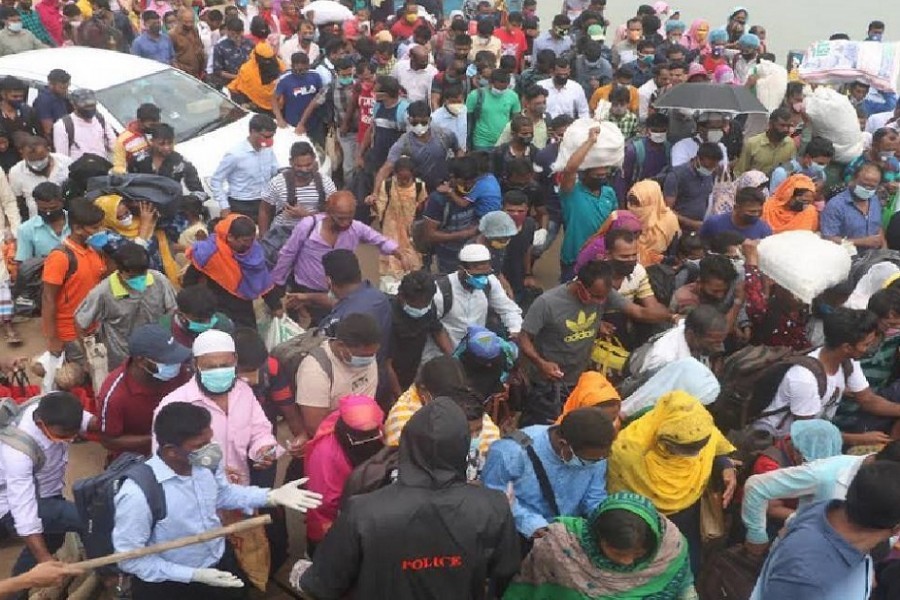To stretch the maxim, 'survival of the fittest' would be a gross injustice to the millions falling victim to the global pandemic and failing to make both ends meet. It is once-in-a-century, if not more, cataclysmic disruption of the established socio-economic order where no one knows who will be the next victim and when. But as long as life lasts, man has to give his best to overcome the reversal. This exactly is what people the world over are now doing. At home, fellow citizens are fighting an overwhelming odd because of a developing economy with wide disparities. The economic base in the informal sector was in the process of consolidation and before it could complete the process, coronavirus has arrived with all its furies to negate many of the gains of decades. Those involved with enterprises in the informal sector, no wonder, are the worst hit.
This is manifest mostly in the capital city Dhaka with families in their hundreds leaving it because of their loss of livelihoods. There are families who have been living in this mega city for decades, raised their children here, sent them to schools and colleges but job losses of all earning members have compelled them to say goodbye to this city. It is unlikely to be any different for their fraternity in other cities and towns in this country. Those who have a village home will at least be able to protect themselves from elements when they return to their roots but what about others who do not have even a homestead? Not many of their relations will welcome them with open arms and even if they do for the time being, they will prove burdensome soon enough. Many such people could not pay their house rent for three or four months and had to vacate their rented residences on account of uncertainty over getting their jobs back or managing another.
A Brac study published in May last finds that 36 per cent people of diverse professions and classes all across the country have lost employments. Three per cent employees were not terminated and yet not paid their wages and salaries. Of those working as daily wage earners, 62 per cent had no work. According to the Bangladesh Institute of Labour Studies (BILS), about 10 million people have become unemployed in the country since the corona-induced shutdown. With the opening up of the economy, the situation may have improved somewhat but for the majority there is no option other than leaving their urban shelters.
Corona has, thus, not only taken a heavy toll of lives and livelihoods but also of people's optimism about life. The country's prime minister has time and again urged people to remain positive. Indeed, the shiny days break forth following the darkest nights. However, to welcome better days, both the government and the private sector must join hands together for gradual recovery of the economy. There is an indication that opportunities might be there in the post-corona period to seize for some productive sectors like the readymade garments. In the meantime, though, the local government system has to be empowered far more than it is now in order to trace all those returnees. Close cooperation between local government, lower tiers of administration and public health system can address problems like contact tracing and irregularities in distribution of government aid and small credits. These may prove crucial for survival of the vulnerable.


